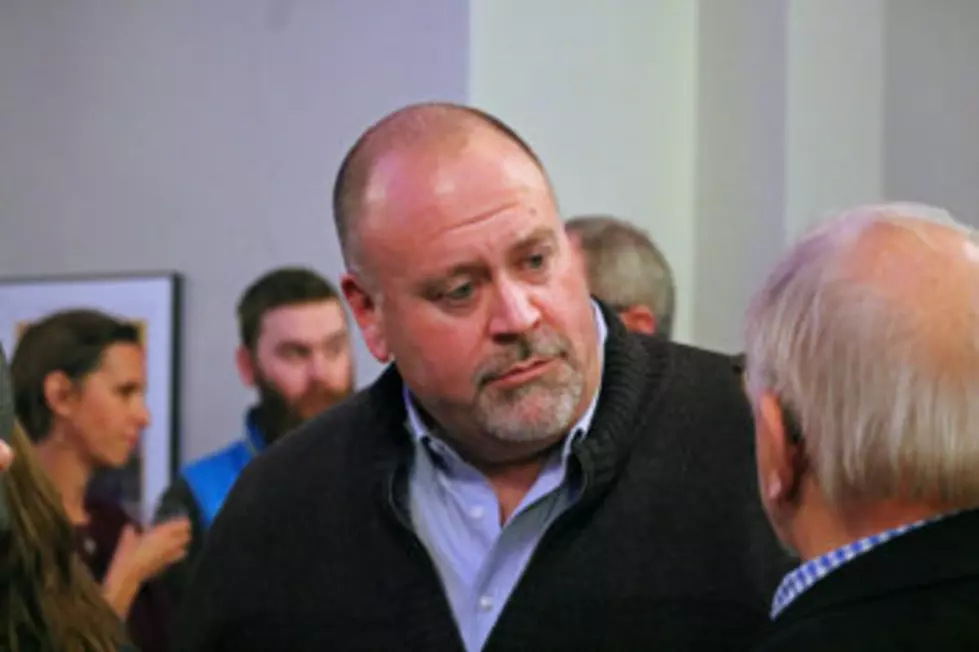
Mayoral race: Engen looks to advance housing efforts, infrastructure, services
Four years ago, Missoula Mayor John Engen walked into a city meeting and announced his plans to establish a new housing office, one charged with creating a housing policy and taking intentional efforts to address the city's housing issues.
Since then, the city has streamlined its housing and permitting departments, adopted a housing policy, purchased several properties around the city, and taken a fresh look at reforming its building and zoning codes, all in an effort to expedite and simplify the construction of housing.
“I hope folks recognize that when I say I'm going to do something, I do it,” Engen said. “This is a we business. I work with partners to get stuff done, and if you look at where we are today, based on all that intentional work around housing, we'll have the state's largest permanently affordable housing development on Scott Street and hundreds of units of affordable housing at the Vallagio.”
Engen, a Missoula native who now stands among the city's longest-serving mayors, is seeking another term this November. Of his three challengers, only one participated in an interview, that being Shawn Knopp.
Both Jacob Elder and Greg Strandberg declined to answer questions and detail their platform.
Saying his work isn't yet done, Engen wants to lead the city through pandemic recovery, create more affordable housing, continue efforts around equity, and ensure basic city services are where they need to be, including the water system.
“The more thoughtful we are, the better off we'll be,” Engen said. “Having an experienced hand at the tiller with a lot of relationships lets me be measured, tempered and not rash. I get to solve problems by deploying patience and other people's talent.”
Like most candidates in this year's list of municipal races, Engen places housing high on the list of issues he wants to tackle. The Scott Street project came from a public-private partnership after the city purchased around 19 acres and reserved 10 of them for housing.
A deal struck between the city and Ravara Development LLC will see around 70 units dedicated as permanently affordable housing. And down the street, another large development at the Vallagio will see several hundred affordable units come online.
Other city-owned properties, including the Sleepy Inn, the old library block and several acres in the Midtown district will also be redeveloped into housing with mixed-use amenities. Along the way, the city is rewriting its zoning codes and streamlining its permitting process.
“We took a big step with Title 20, our new zoning code, and now it's time to modernize the whole thing,” Engen said. “We've got an opportunity to be really intentional about design. We don't control growth, we don't manage it, but we can sure guide it, and there are great, modern land-use codes out there we're going to customize for Missoula so people who build houses and other things are in a position to do so creatively and efficiently.”
Engen believes the city has a unique opportunity to deploy millions of dollars in federal funding made available through both pandemic relief and a pending infrastructure bill. The funding represents a one-time opportunity to make improvements to a range of needs.
Engen said the city has done the planning, and the results of that work will benefit from federal funding.
“We just wrapped up our long-range transportation plan, which ties directly to our federal funding package,” Engen said. “We've got projects lined up and priorities set, so as that money comes in, we can get the private sector to work building stuff.”
Among the infrastructure needs, Engen said bringing the water system up to industry standards is key, and he'd like to explore a new interchange near Scott Street and Interstate 90.
“I'd like us to take a really hard look at a new interchange, one that gets us to the Northside and Broadway corridor,” he said. “We have a great relationship with MDT, and I think we've got some unique opportunities there as well.”
Engen is aware of the criticism from opponents and says they come with being the incumbent. Many of those criticisms revolve around taxes, though Engen believes they're often taken out of context.
“It's a myth we're the most heavily taxed city in the state – we're not,” Engen said. “We're comparable with other communities in terms of cost of living. We're where we need to be, but that's certainly not going to satisfy everyone.”
Engen said Missoula's population growth of around 2% requires investment, and that investment costs money.
“I'm not a tax and spend guy, but I'm very practical. If we want the services that make our community livable and safe and attractive, we're going to need to pay as we go,” he said. “We're careful every year when we look at the budget, and when you look at the federal level with folks trying to have it both ways, you can't. I've always been honest with people about that.”
https://missoulacurrent.com/government/2021/08/shawn-knopp-mayor/
